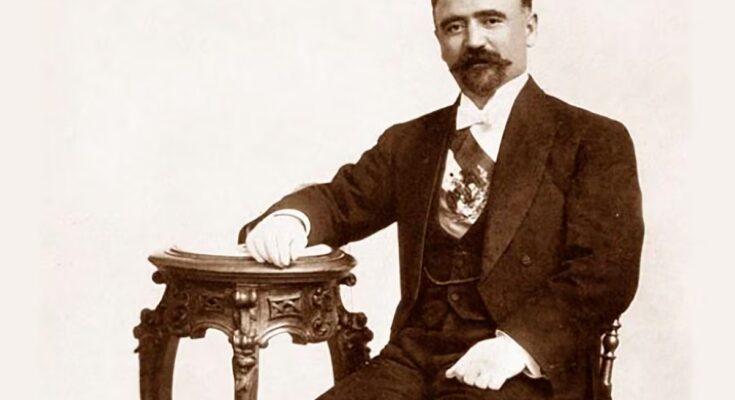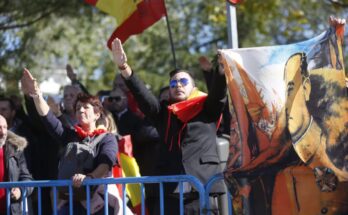Francisco Ignacio Madero González is remembered as one of the leaders who challenged the regime of Porfirio Díaz and lit the spark of the Mexican Revolution. His life was guided by liberal thought and a strong democratic belief, but also by the practice of spiritualism and decisions that led him to face the problems that marked his brief presidential administration. The politician was born on October 30, 1873 in Parras de la Fuente, in the state of Coahuila. His lineage comes from a family of landowners with important positions of power, including his grandfather Evaristo Madero Elizondo, who was governor of Coahuila between 1880 and 1884. Since then, the Madero family had some differences with Porfirio Díaz, who was heading into his third term as president of Mexico.
Thanks to his wealthy position, Francisco I. Madero was able to study at renowned institutions in the United States and France. During his stay abroad he became involved in social circles that followed the spiritualist doctrine of Allan Kardec. In sessions he acted as a writing medium, recording the messages he claimed to receive while in trance. According to several stories and texts, one of the spirits that visited him was that of his brother Raúl, who died in a tragic accident when he was a child. “These communications made me deeply understand the spiritualist philosophy and, above all, its moral side, and since they spoke to me intimately with great clarity about the invisible ones who communicated with me, they managed to transform me, and from a young libertine and useless to society, they transformed me into an honest family man, who has the good of the country at heart and who tends to serve it to the best of his ability”, Madero wrote in his memoirs.
Upon his return to Mexico to manage one of his father’s properties, he began to participate more actively in political life. In Coahuila, he promoted opposition movements that questioned re-election and electoral fraud rooted in local politics. Furthermore, he became involved in the organizing committee of the Mexican Liberal Party and contributed financially to the publication of the newspaper Regeneración, although ideological differences with the Flores Magón brothers eventually made him follow his own path.
In 1908 he published The presidential succession of 1910where he proposed establishing democratic elections, establishing rotation in public offices and strengthening political organizations capable of holding free elections. The following year he founded the National Anti-reelectionist Party, with which he ran for the presidency of Mexico. His growing popularity put him in the sights of the Porfirist regime and he was arrested on the eve of the elections, accused of attempting to rebel and insulting the authorities. After regaining his freedom, he promulgated the Plan of San Luis, with which he called on the people to take up arms, although several months had to pass before the movement gained sufficient strength to precipitate Díaz’s resignation.
Madero assumed the presidency on November 6, 1911, after winning that year’s elections. However, his lack of political experience soon caused him serious difficulties. His slowness in making decisions, the rebellions that broke out in several regions by revolutionaries dissatisfied with the agreements, the lack of loyalty of the military forces and the constant criticism of the press, which even ridiculed his spiritualist beliefs, quickly weakened his government. Following the coup d’état orchestrated by Victoriano Huerta, Francisco I. Madero was forced to resign the presidency in February 1913 with the promise that he would be allowed to go into exile in Cuba. However, that guarantee was never fulfilled and a few days later, on February 22, Madero and his vice president, J.ORI know María Pino Suárez, they were murdered while in the custody of the Huertista regime.
Although his rule was brief, Madero’s ideals blazed a trail that forever transformed the country’s political life, as his commitment to democracy and citizen participation became one of the most enduring foundations of the Mexican Revolution.



